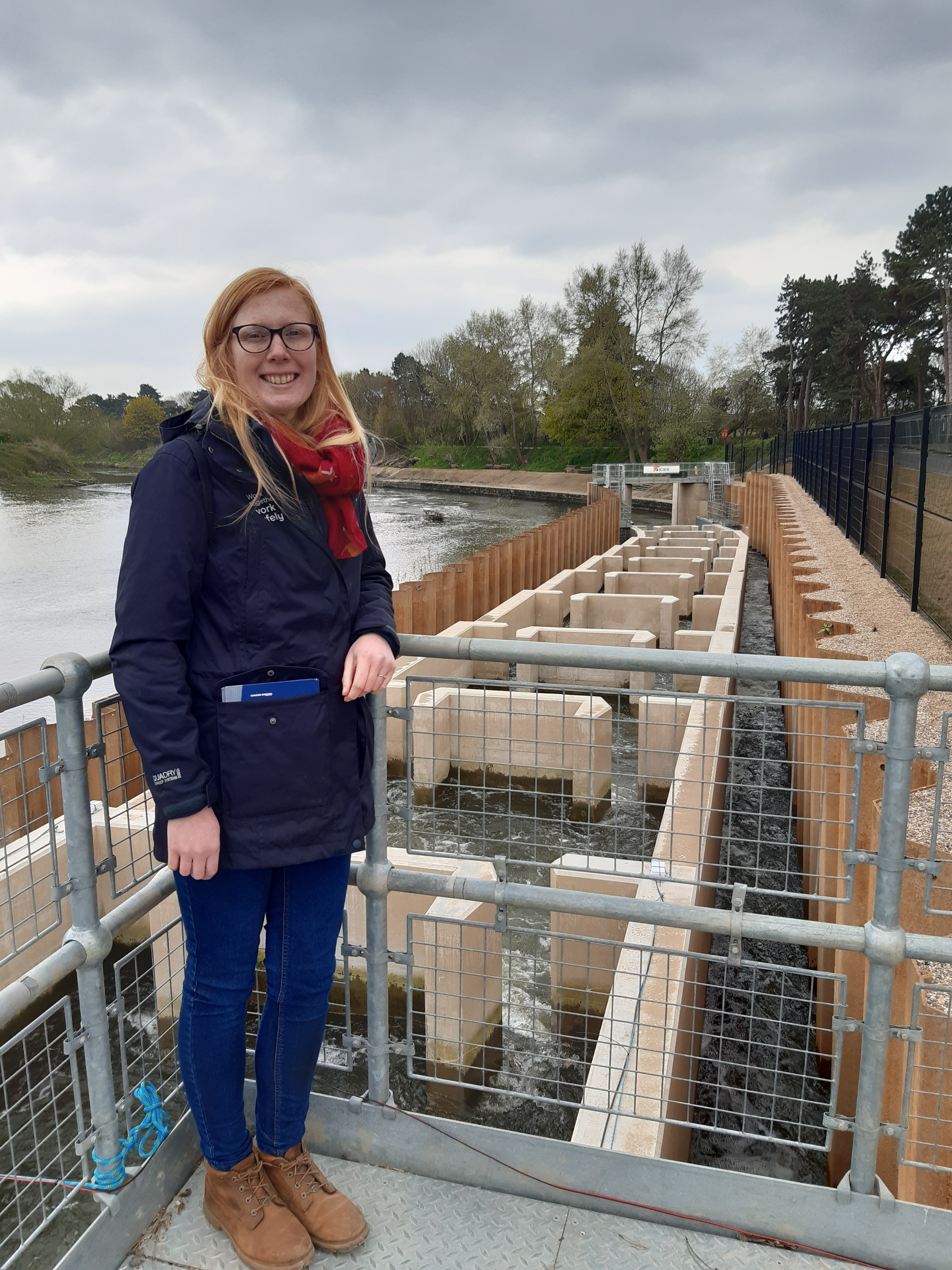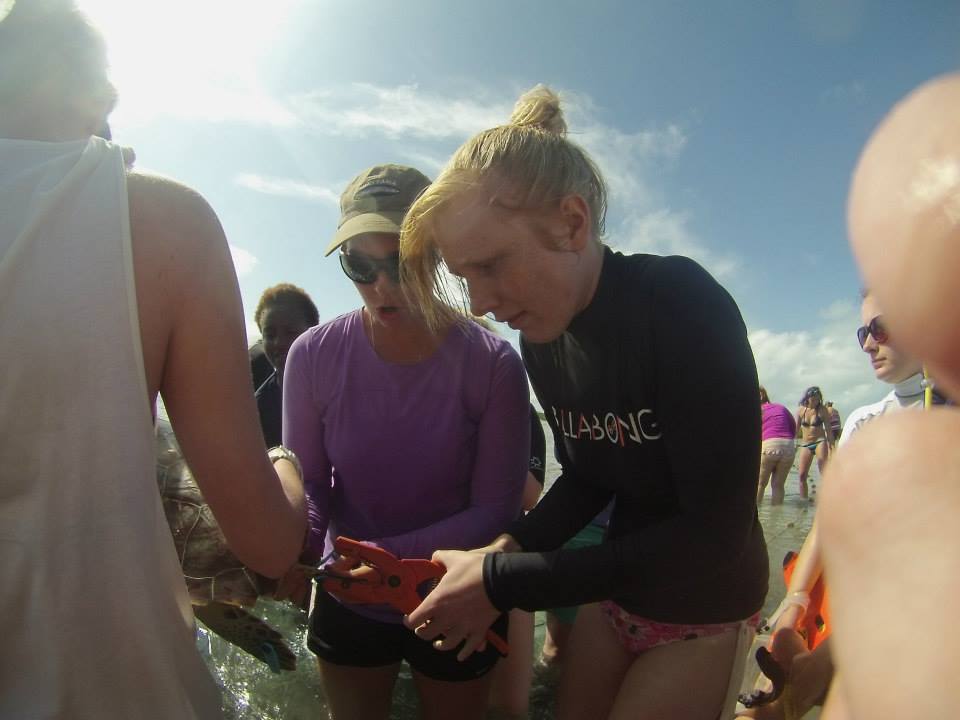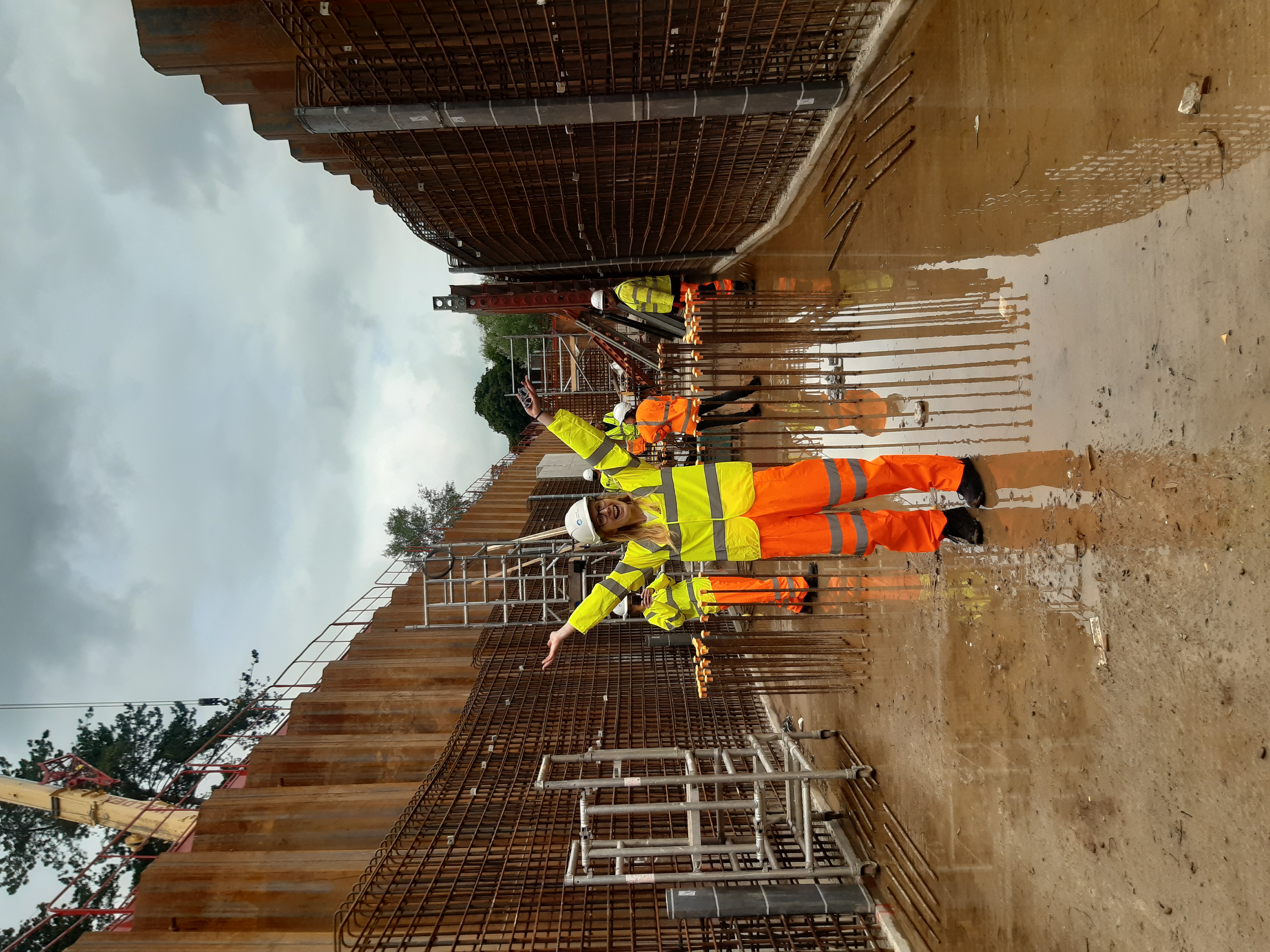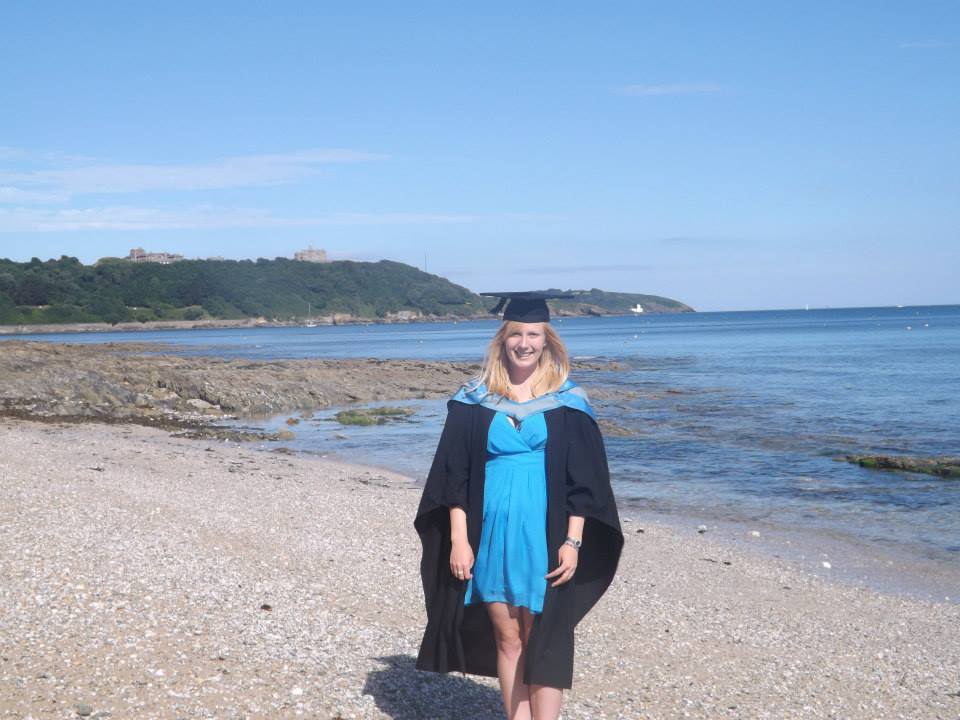We are looking back on some of our BSc graduates who have excelled in scientific research, ecology and conservation around the world since studying with us.
Today we meet Steph who graduated from BSc Conservation Biology and Ecology in 2014 and is now the Events Officer for Canal & River Trust on the Unlocking the Severn project.

Hi Steph, it’s been just over 5 years since you studied with us, why don’t you tell us a bit about your career in that time that led you to where you are now?
After graduating I stayed on at the University working as a Student Engagement and Outreach Coordinator with the College of Life and Environmental Sciences for two years, followed by a bit of work as a research assistant. I then went to Somerset Wildlife Trust to do an Education and Community Engagement traineeship, before becoming a Learning Officer at WWT Slimbridge. I then moved into my current role as Events Officer for Canal & River Trust on an amazing river conservation and engagement project called Unlocking the Severn. This project is restoring migration routes for a rare fish called the twaite shad on the River Severn, and also has an exciting community engagement programme which aims to connect people with the river in a variety of ways, and this is the side that I am involved in.
We are glad you have had such great opportunities, what are your highlights from studying at the University of Exeter?
I absolutely loved living in Cornwall. Not only was it a perfect place for my course, surrounded by such beautiful natural environments, but there was always so much to do in my spare time- walking, sea swimming, water sports, exploring new places, festivals and events. Falmouth is such a friendly and vibrant place.
The fieldwork was definitely one of the highlights, not just the big trips to the Bahamas and the Isles of Scilly but also the day trips around Cornwall studying different environments. These were all great opportunities to apply the knowledge that we were gaining in the classroom to the real world, develop ID skills and were also a constant reminder of why I was studying conservation. The lecturers were incredibly knowledgeable and passionate about their teaching. Their enthusiasm for the subject was infectious and always pushed me to want to know more. I feel lucky to have been taught by academics who were leaders in their fields, and also by research students and lab technicians who were always so keen to share their knowledge and experiences.

What made you choose to study your BSc with us at the University of Exeter Cornwall Campus?
I’ll admit that the location definitely had something to do with it- I’ve always loved being near the sea. I also chose Penryn because it was a smaller campus, but still had all of the facilities I needed. It felt right to be studying a conservation degree in one of the most beautiful parts of the country. The diverse range of staff research areas and therefore modules available was a big draw too, as were all of the fieldwork opportunities. I’ve always been interested in marine life and conservation so I liked that I could study elements of that in more detail at each stage of my degree whilst also being able to study modules in areas that I knew less about.

Why did you choose a career in community engagement? Is there anything specific you most enjoy?
I’ve always enjoyed working with people, especially children and young people, and during my degree I discovered that there was a way I could combine that with conservation by working in community engagement. I chose this career because it gives me a chance to share the things I am passionate about with different audiences and encourage others to form a deeper connection with nature. I enjoy the variety involved in this work- each event I organise or group that I work with is different- and I also love that I am constantly learning and having fun. Before starting my current role I knew nothing about fish passes and had never heard of a shad!
There’s a quote attributed to David Attenborough that says ‘No one will protect what they don’t care about, and no one will care about what they have never experienced’. At this critical time for our planet, we need people from all walks of life to experience and feel connected to nature, for both our own health and wellbeing and the health of the planet, and that’s why I am so passionate about what I do.
Do you have any advice for students looking to pursue a similar career?
The first thing I would say is that it is tough starting out in community engagement/environmental education, but definitely worth it! Take every training opportunity/course/workshop that comes up, whether you think it is relevant to your future career or not. I have been on orchard care courses, been trained in conducting rockpool surveys, attended storytelling workshops, been on various identification workshops, to name a few examples. Not all of these are skills that I use in my day-to-day work, but all have helped me to develop a more well rounded knowledge and skill set that is very useful when working with the public. You never know what questions might come up, especially when working with children!
My other piece of advice (which I know always comes up!) is to volunteer as much as you can, however I know regular volunteering can be difficult and inaccessible, especially if you are studying and/or working. Keep an eye out for online training and volunteering opportunities that are often more flexible and accessible. Paid internships and traineeships are becoming more common so look for these during the holidays or when you graduate. And look out for more flexible or one-off opportunities to volunteer or join work parties/events too, and attend those when you can.
Finally, do you have any plans for the future?
I plan to continue working in community engagement within the conservation sector, but who knows what specific areas or organisations I might end up working in- that’s something I find really exciting as I enjoy the variety!

Thank you Steph!
If you want to read more profiles from BSc Conservation Biology and Ecology graduates follow this link or explore our Graduate in Focus homepage to learn more about the degree programmes we have on offer!

